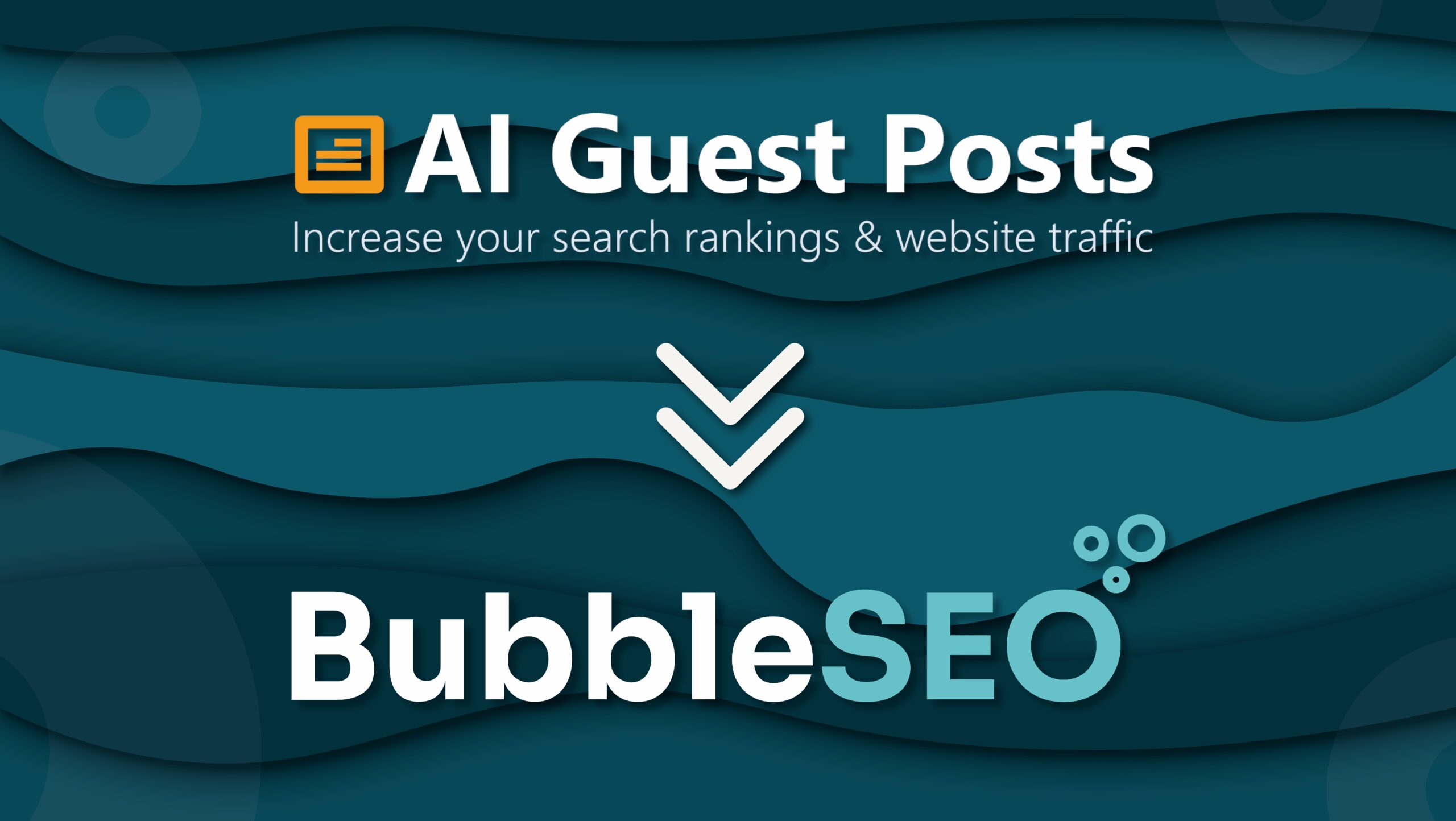
Blogging and guest posts can enhance authority, and build relationships

Article creation is the process of how articles are started, titled, written and developed, and is a key component to any content marketing.
Article creation is the process of how articles are started, titled, written and developed, and is a key component to any content marketing. Planning an article before it is written helps decide whether the content you are about to write is going to be beneficial to your readers. It needs to be relevant to its audience and grab their attention from the masses of other sources now online. Article creation gives you the opportunity to attract new customers seeking information on a particular topic relating to your work or business, or alternatively help you know how to reach out to those new customers.
All successful marketing strategies include good content marketing which is reflected in their article creation. By doing this regularly enables you to connect with exactly what your readers are looking for at every stage in the engagement process. If you can capture their attention throughout, it will build a strong relationship between you and your audience, and they will trust your content or business above your competitors.
The great thing about article creation is that whatever you put into it, you should get out. If you have taken the right steps in your planning this will show in your results. By regularly creating content you are ensuring that you are staying ahead of any competitors, but the main online benefits of doing this are ultimately to:
To achieve the above benefits, try to keep in mind your target audience whilst working on each aspect of your marketing. As we know, marketing is not just about written articles, it can be across social media, website advertising, paid posts and much more. These types of platforms are continually growing to be successful with the amount of people who use social media that is only makes sense to spread the marketing across these areas too. When doing your content marketing is it equally important to include Regular article creation on these platforms too. It is all about being seen on social media so scheduling good content ready to post on a regular basis is a good step to keep your audience engaged.
Whilst writing across this range of media, try and use specific keywords in each article to keep your targeted topics similar. In turn this will improve your SEO and maximise your exposure in organic search results. This content you put out to your audience could be the first stage of them buying into your product. It is a good ideal to monitor these keywords and trial them for an amount of time before replacing them with some other keywords and seeing which is most effective with your audience.
If you are struggling with this aspect there are many useful online tools that can assist you in everything from your article creation to complete marketing strategy. Sites like SEMrush have many useful templates and tools to get all of your ideas together and help with article creation.

Grow your business online with content marketing solutions from Bubble SEO today.
Place An Order
In today’s competitive digital landscape, SEO (Search Engine Optimisation) is a crucial element for any website looking to enhance its online presence and attract organic traffic. One of the most effective strategies in SEO is link building—the process of acquiring backlinks from other websites. In this article, we will explore the importance of link building, how it boosts your website’s authority, and how you can effectively implement it in your SEO strategy. What Is Link Building? Link building refers to the process of acquiring hyperlinks from other websites that point back to your own. These backlinks are seen by search engines like Google as a vote of confidence. When reputable websites link to your content, it signals to search engines that your website is trustworthy and authoritative, ultimately boosting your rankings. Why Are Backlinks Important? Backlinks are among the top ranking factors for search engines. High-quality backlinks are one of the primary ways to improve your site's domain authority (DA) and PageRank, both of which contribute to better search engine rankings. Websites with more authoritative backlinks typically have higher chances of ranking on the first page of search engine results. Moreover, backlinks help establish your credibility within your niche, creating opportunities for referral traffic from other sites. Essentially, a well-executed link building strategy helps you build a network of trust with both users and search engines, paving the way for long-term SEO success. Types of Backlinks to Focus On Not all backlinks are created equal. There are various types of backlinks you can acquire, and understanding the differences can help you focus your efforts on the most valuable links: Editorial Backlinks: These are natural links embedded within a piece of content. They come from reputable websites and are usually the result of your content being deemed valuable. Guest Post Backlinks: Guest posting allows you to contribute content to another website, earning a backlink in return. These links are beneficial, especially when they come from high-authority blogs within your industry. Directory Backlinks: Adding your website to trusted business directories can provide valuable backlinks. However, be cautious of low-quality directories that can harm your SEO. Resource Page Links: Many websites feature "resources" pages that link to helpful content. Getting your website listed on such pages can improve your authority. Effective Link Building Strategies Create High-Quality ContentTo attract backlinks naturally, your content must be valuable. Aim to produce well-researched, informative, and engaging content that others would find useful and want to link to. A robust content strategy will not only help with SEO but also position you as an authority in your niche. Leverage Guest BloggingGuest blogging is an excellent way to build backlinks. By writing articles for other reputable sites in your industry, you can earn high-quality backlinks while exposing your brand to a wider audience. Look for opportunities on blogs that have a strong readership and are relevant to your field. Reach Out to Influencers and BloggersBuilding relationships with influencers and bloggers can help you earn backlinks through collaborations or mentions. By offering value in return (e.g., a shoutout, a link to their work, or exclusive content), you can create mutually beneficial partnerships that improve your site's authority. Submit to Niche DirectoriesSubmitting your website to niche-specific directories can also provide valuable backlinks. However, always make sure the directory is reputable and relevant to your industry, as poor-quality directories can have a negative impact on your SEO efforts. Broken Link BuildingThis strategy involves finding broken links on other websites and suggesting your own content as a replacement. By helping website owners maintain their content, you not only help them but also earn a backlink. Utilise Social MediaWhile social media links themselves are typically no-follow (meaning they don’t directly affect SEO), promoting your content on platforms like Twitter, LinkedIn, and Facebook can drive traffic and increase the likelihood of others linking to your website. Measuring the Success of Your Link Building Efforts Tracking your link building efforts is essential for determining the success of your strategy. Some of the key metrics to monitor include: Domain Authority (DA): As your backlink profile improves, your website's domain authority should increase. Tools like Moz’s Link Explorer can help you track this metric. Referring Domains: Keep an eye on the number of unique domains linking to your website. More referring domains generally indicate a stronger backlink profile. Organic Traffic: Over time, an effective link building strategy should result in higher organic traffic to your website. Tools like Google Analytics can help you track changes in traffic. Conclusion Link building is a critical aspect of SEO that should not be overlooked. By focusing on acquiring high-quality backlinks from reputable sites, you can boost your website’s authority, improve your rankings, and attract more organic traffic. Whether you're using guest posting, content creation, or outreach strategies, a thoughtful approach to link building can be a game-changer for your SEO success. For expert link building services tailored to your business, visit Bubble SEO and let us help you create a strong backlink profile that drives your website to new heights.

Effective keyword targeting is the cornerstone of successful content marketing. By strategically incorporating the right keywords, you can enhance your SEO, drive traffic, and improve your overall content performance.

We're excited to announce that AI Guest Posts has undergone a transformative rebranding and is now known as Bubble SEO. This strategic move has allowed the business to develop within the digital landscape and highlight our commitment to providing digital marketing solutions tailored to enhance online visibility and engagement for our customers. Bubble SEO remains dedicated to delivering high-quality, targeted content and effective SEO solutions that align with evolving digital marketing trends. Here is a little more information about our brand and its services. Our services: At Bubble SEO, we specialise in three core services, with content writing being a new feature to the website: Guest Posting: Which aims to enhance your online presence with high-quality guest posts on authoritative websites, driving traffic and boosting your SEO rankings. Link Building: Helps build a robust backlink profile with strategic link building services that improve your website's authority and visibility. Content Writing: Provides engaging content for your audience with compelling content tailored to your brand voice and SEO needs. Benefits of Bubble SEO: We have now made changes to the booking process to simplify this, and updated the customer dashboard section in the hope to improve our existing values below: Enhanced Service Quality: With our rebranding comes a renewed focus on delivering top-notch services that exceed your expectations. Improved User Experience: Our new website offers a streamlined interface, making it easier for you to navigate and access our services. Expanded Network: Benefit from our expanded network of partner websites, ensuring broader outreach and better opportunities for your business. Loyalty Rewards: As a token of our appreciation for the continued support of our bookers, we have now introduced loyalty rewards: Exclusive Discounts: Enjoy special discounts as a loyal Bubble SEO customer, with the more points you acquire, the more exciting offers you will unlock. We're thrilled about this new chapter as Bubble SEO and look forward to continuing to be your trusted partner in achieving your digital marketing goals. Stay tuned for more exciting updates and announcements! Discover the new Bubble SEO and elevate your online presence today! Jennifer Hobson – Digital Marketing [email protected] Heather Ryan – Business Development [email protected]

In today’s digital world, small businesses face increasing challenges in standing out online. Your content, SEO strategy, and overall online presence play a crucial role in ensuring your business gets noticed. But with so much competition, how do you cut through the noise? Investing in professional content writing services can make all the difference. Here’s how: Boosting SEO with High-Quality Blog Content Blogs are a powerful tool for improving your website’s SEO rankings while providing valuable and engaging content for your audience. According to HubSpot, businesses that blog get 55% more website visitors than those that don’t. Regularly publishing well-written blogs can: Establish your expertise in your industry. Keep your audience informed and engaged. Enhance your website’s authority in search engines. SEO tools like SEMrush can help identify the right keywords and topics to focus on, ensuring your blog content is both relevant and high-performing. Well-crafted blog content doesn’t just attract readers—it builds trust and converts them into loyal customers. Bubble SEO’s content writing services can help you create blog content that delivers real results. SEO-Optimised Product Descriptions for E-Commerce For e-commerce businesses, product descriptions do more than inform customers—they also play a crucial role in SEO. Optimised product descriptions can: Help products rank higher on search engines. Improve user experience with clear, compelling copy. Encourage customers to make informed purchase decisions. A great product description speaks directly to your customer’s needs while naturally incorporating relevant keywords. Professional content writers ensure that your product descriptions are engaging, error-free, and designed to boost visibility and conversions. Repurposing Content for Maximum Impact A strong brand voice requires cohesive and consistent messaging across multiple platforms. Repurposing content allows you to: Reinforce your brand identity. Increase engagement on social media, newsletters, and website pages. Improve your SEO by distributing valuable content across different channels. Additionally, content can be repurposed for email marketing campaigns—one of the most effective digital marketing channels, with an ROI of £42 for every £1 spent in the UK. A well-executed content strategy ensures seamless, impactful campaigns that drive engagement and conversions. 4. Compelling Copy for Paid Ads & PPC Campaigns Paid advertising and pay-per-click (PPC) campaigns rely on strong, persuasive copy. Well-crafted ad content can: Capture attention and increase click-through rates. Convince potential customers to take action. Enhance your return on investment (ROI) for digital ads. Think of your ad copy as your business’s first impression—engaging and persuasive content can be the difference between a missed opportunity and a new customer. Bubble SEO’s team specialises in creating ad copy that converts. 5. Improving Local SEO Rankings If your business operates in a specific location, ranking higher for local search terms is essential. Content writing services can support local SEO efforts by: Creating location-specific blog content. Developing targeted landing pages with optimised copy. Enhancing your Google visibility for searches relevant to your area. According to Google, 46% of all searches have local intent, meaning businesses that optimise for local SEO have a much higher chance of attracting customers in their area. Whether you run a coffee shop, a boutique, or a consultancy, strong local SEO strategies can bring more people to your door—both digitally and physically. Why Content Writing Services Are a Smart Investment As a small business owner, balancing content creation with day-to-day operations can be overwhelming. High-quality, SEO-optimised content isn’t just about ranking higher on Google—it’s about telling your brand’s story, engaging your audience, and turning visitors into customers. By outsourcing content writing, you ensure your online presence remains consistent, professional, and impactful. In a competitive digital world, compelling content isn’t a luxury—it’s a necessity.

In the fast-paced world of digital marketing, staying ahead of Google’s algorithm changes is critical for maintaining visibility and driving traffic to your website. With 2025 already promising exciting shifts in search engine optimisation (SEO), marketers and business owners must remain proactive to safeguard their online presence. At Bubble SEO, we specialise in helping businesses navigate these changes with ease, ensuring their strategies remain effective and future-proof. Here are some practical steps to keep ahead of Google algorithm changes in 2025. 1. Prioritise High-Quality Content Content remains king in 2025, but Google’s algorithms are becoming increasingly adept at distinguishing truly valuable content from low-effort attempts to game the system. To stay ahead: Write for your audience first and foremost, ensuring your content provides real value. Incorporate structured data like FAQs or how-to guides to enhance visibility in search results. Use tools like Google Trends to identify trending topics and tailor your content accordingly. 2. Focus on E-E-A-T Google's emphasis on Expertise, Experience, Authoritativeness, and Trustworthiness (E-E-A-T) continues to grow. Here’s how to align with these principles: Showcase your credentials and expertise on your website. Regularly update content to reflect the latest industry developments. Earn backlinks from reputable sites to bolster your domain authority. If you need help with building high-quality backlinks, check out Bubble SEO’s services for tailored link-building strategies. 3. Embrace AI and Machine Learning AI is playing a major role in shaping Google’s algorithms. Leverage AI tools to: Optimise your content for user intent. Generate predictive keyword insights. Automate repetitive tasks like on-page SEO audits. Stay informed about the latest AI developments with Google’s AI blog, which offers updates and insights. 4. Optimise for Mobile and Core Web Vitals Mobile-first indexing is now the norm, so your website must be fully optimised for mobile users. Additionally, Google continues to prioritise Core Web Vitals, which measure: Page load speed. Interactivity. Visual stability. Use Google’s PageSpeed Insights to identify areas for improvement and enhance your website’s performance. 5. Harness the Power of Local SEO For businesses targeting specific geographic regions, local SEO is indispensable. To stay ahead: Keep your Google Business Profile updated with accurate information. Encourage customer reviews to build trust and authority. Use geo-targeted keywords to capture local search traffic. 6. Monitor Algorithm Updates Closely Being aware of upcoming changes allows you to adapt swiftly. Regularly check for updates on platforms like: Google Search Central Search Engine Journal By staying informed, you can fine-tune your strategy before your rankings are impacted. Conclusion Navigating Google algorithm changes in 2025 doesn’t have to be daunting. By prioritising quality content, staying informed about updates, and leveraging expert guidance, you can ensure your SEO strategy remains effective. Whether you’re looking for help with link-building, content creation, or an overall strategy refresh, Bubble SEO is here to help. Start 2025 strong by optimising your website today—because staying ahead of the competition begins with staying ahead of Google!